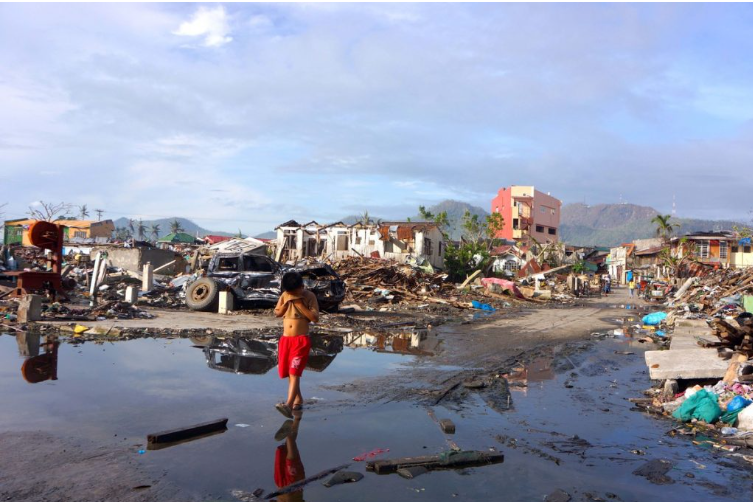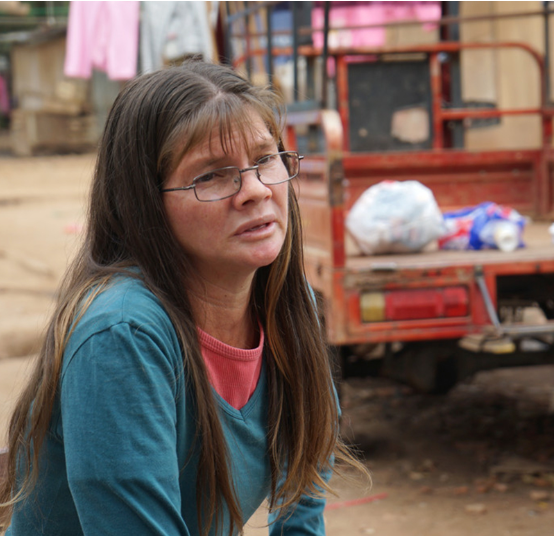Natural disasters. We’ve all heard and probably used the term before.
It’s used on the news, on social media, and in everyday conversations to describe extreme events like hurricanes, earthquakes and volcanoes.
But in our 20 years of supporting communities affected by these disasters, we’ve come to realise that this term is problematic – and even harmful.
Read on to learn more about why natural disasters might not be so natural after all.
WHAT IS WRONG WITH THE TERM ‘NATURAL DISASTER’?

Disasters are not natural. If the same powerful cyclone were to hit two different regions in the world, the results would look very different.
It’s actually the decisions we make that create a disaster.
Factors like living conditions and poverty, government capacity to prepare and respond, as well as the process of rebuilding and how efficient that would be, are all factors that will define whether a disaster occurs as a result of the natural hazard.
Hazards are inevitable – but the impact they have on society is not.
WHAT IS THE DEFINITION OF A DISASTER?
The most widely used definition of a disaster has been developed by the International Federation of Red Cross and Red Crescent Societies (IFRC). It states that a disaster is:
“A sudden, calamitous event that seriously disrupts the functioning of a community or society and causes human, material, and economic or environmental losses that exceed the community’s or society’s ability to cope using its own resources.”
This definition clearly differentiates between a hazard, which is natural, and a disaster, which is not.
A hazard can only become a disaster once it affects society or a community.
WHY DO WE NEED TO MOVE AWAY FROM THE WORD ‘NATURAL’?

Using the word ‘natural’ ignores the role that humans have in the disaster.
It assumes that the event would happen anyway and there is little that we can do to prevent it.
Shifting the blame for the disaster damage and losses to nature or to an ‘act of God’ absolves responsibility for communities living in vulnerable conditions and locations.
The word takes away the social, political, environmental, and economic context from disaster stories, failing to recognise the social injustices that are present.
The way we talk about disasters affects the way we all perceive the risks that they bring.
Getting the term right is crucial because it shapes how we think about disasters and how they are linked to issues like climate change.
WHAT IS THE LINK BETWEEN CLIMATE CHANGE, DISASTERS AND VULNERABLE COMMUNITIES?

Disasters aren’t natural, and neither is climate change.
Our changing climate is making large weather events like droughts, hurricanes, droughts and wildfires worse.
Extreme weather events like these often happen in countries where many people live in poverty. We help vulnerable communities recover after disaster, but the climate crisis is making challenging situations worse.
The climate crisis is a human crisis, permanently changing the lives of millions of people living vulnerable locations around the world.
It is having a huge impact on people who depend on the weather for their livelihoods. People who farm, rear livestock, or live a nomadic lifestyle are struggling to feed their families. Climate shocks bring devastating and long-term effects, often forcing them to move away into cities.
HOW SHOULD WE DESCRIBE DISASTERS?
Our teams have moved away from using the phrase ‘natural disaster’. Instead, we refer to:
- extreme weather events which include hazards like tropical storms, droughts and flooding
- seismic hazards and events which include volcanos and earthquakes.
- We also talk about conflict and complex emergencies when we refer to wars, outbreaks of violence and complex political situations. These situations have many complicated factors at play which can often include stresses relating to the environment and climate change.
References: Global Network of Civil Society Organisations for Disaster Reduction (GNDR), Prevention Web
